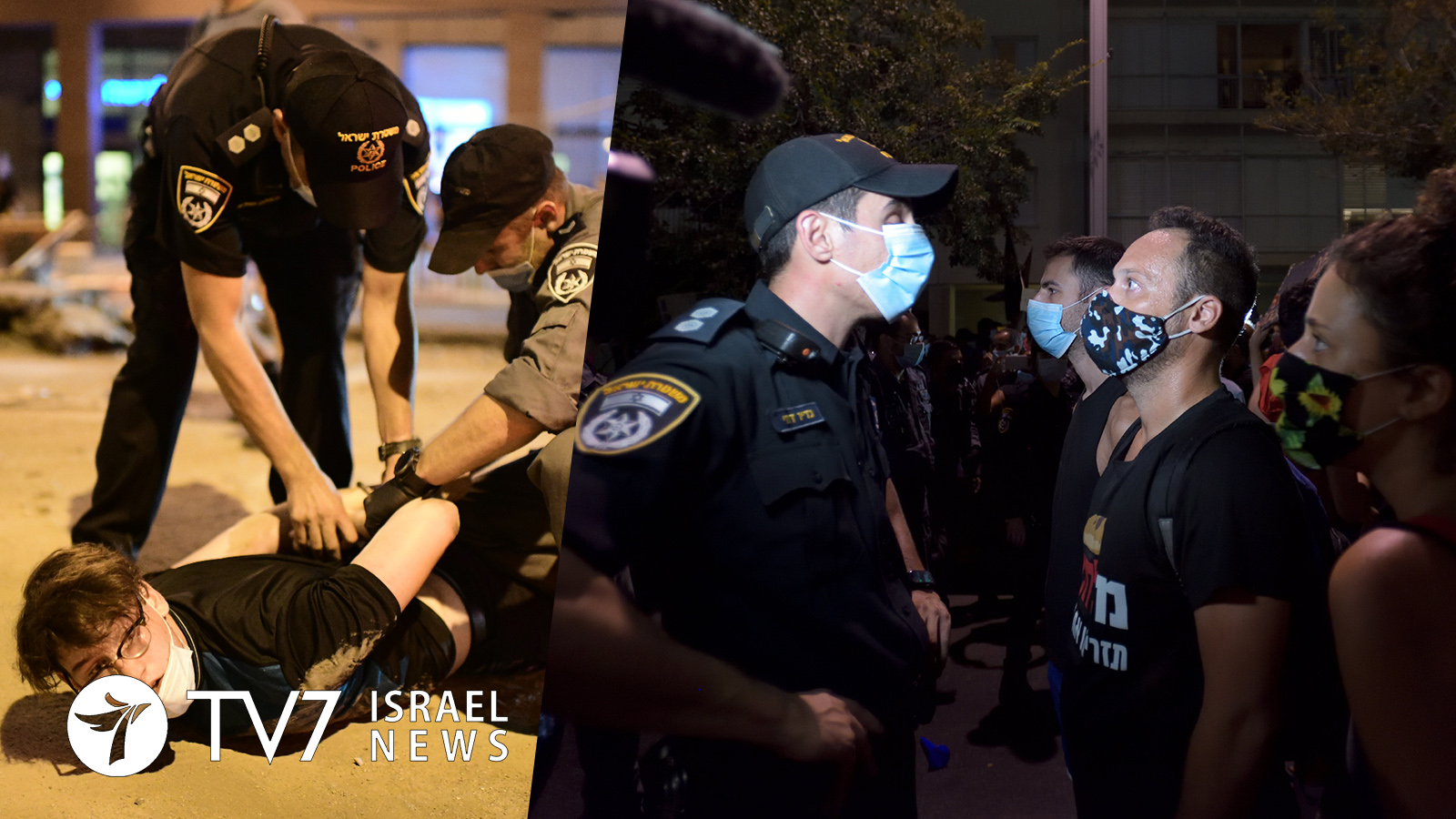Clashes between crowds and police erupted during dozens of anti-government protests across Israel in recent days. Dozens of people were arrested as thousands of people marched over the weekend, in defiance of controversial new legislation against mass protests as part of the coronavirus lockdown.
The new law bans Israelis from attending demonstrations more than 1 kilometer (just over half a mile) from their homes and forces stricter social distancing. While the government insists the measures were designed to contain a second-wave surge in coronavirus infections, critics view it as a curb on their freedom of speech. Protestors have been demanding the resignation of Prime Minister Benjamin Netanyahu over his handling of the coronavirus crisis amid indictment on corruption, which he denies.
Most protests on Saturday night were small and scattered throughout the country, though a crowd of thousands gathered in Tel Aviv. A small number of protesters tried to block city streets and clashed with law enforcement officials. A police spokesman said that about fifteen people were arrested. Footage of protesters being shoved or punched have lead to accusations of police brutality.
Blue and White Knesset Member Miki Haimovich announced plans to convene a hearing of the parliament’s Internal Affairs and Environment Committee to examine police action during the demonstrations. Haimovich, a former journalist, was quoted by the Ynet news site as saying that she “received many queries from citizens who went outside to protest within a kilometer from their homes while adhering to the rules demanding face masks and distancing, but were nevertheless dispersed by police.” She said the inquiry would be held “against that backdrop and the backdrop of other incidents in the protest in Tel Aviv last Thursday,” in apparent reference to the arrest of a man suspected of deliberately driving his car into a crowd of activists, that left several people claiming they had been lightly injured.
Tel Aviv Mayor Ron Huldai, who was present at a protest at the Saturday night demonstration in the central Habima Square, told local media that the attempt “to prevent protests is a political question that’s putting the police in an impossible situation.” In an interview with Channel 12, he said the demonstration was peaceful until “someone gave an order — I saw it happen — to send in the undercover and uniformed cops to pull out the protesters.” According to the Mayor, a young woman standing close to him was suddenly confronted by police “with unexplainable violence.”
The Tel Aviv Mayor insisted that police are being deployed by the government as “a political tool in a political debate” and “not to enforce the coronavirus [lockdown rules] but to break up the demonstrations.”
Acting Israel Police Commissioner Motti Cohen has denied any wrongdoing or that the force has been subject to political pressure, arguing that “unfortunately there are those who break the law and do not obey the instructions of the police.” He went on to vow that “we will not turn a blind eye to blatant violations of the law, in protests or anywhere else.”
Channel 13 cited accusations of unnamed senior police officials that Public Security Minister Amir Ohana, a member of Netanyahu’s Likud political party, has been trying to “intervene in the police work on the ground every day, even though that’s not his job.” “In recent weeks, Minister Ohana has been trying to teach the police top brass to have zero tolerance toward the protesters,” they said, including greater use of aggression in their dealings with protesters.
Ohana urged police to “be strong, you’re saving lives” in a tweet on Saturday night, in which he also maintained that “negative voices, driven by ulterior motives, are trying to weaken the enforcement of law and order.”
Protest groups have condemned both the Public Security Minister and Police Commissioner. “It is sad to see Commissioner Cohen’s complete surrender to the political echelon,” said a statement issued by the Black Flag group, while branding Netanyahu as “the defendant” and Ohana as the “Hate Minister.” The Crime Minister organization charged that Cohen’s comments “demonstrate detachment and a shirking of responsibility for police failures and serious violence against the protesters,” and that “under Amir Ohana, and without a permanent chief, the police has become a political police in the service of a criminal defendant. The result is a loss of conscience, serious violence, and abuse. If the senior command doesn’t wake up and stop the madness we will descend a slippery slope to complete public distrust of the police.”
